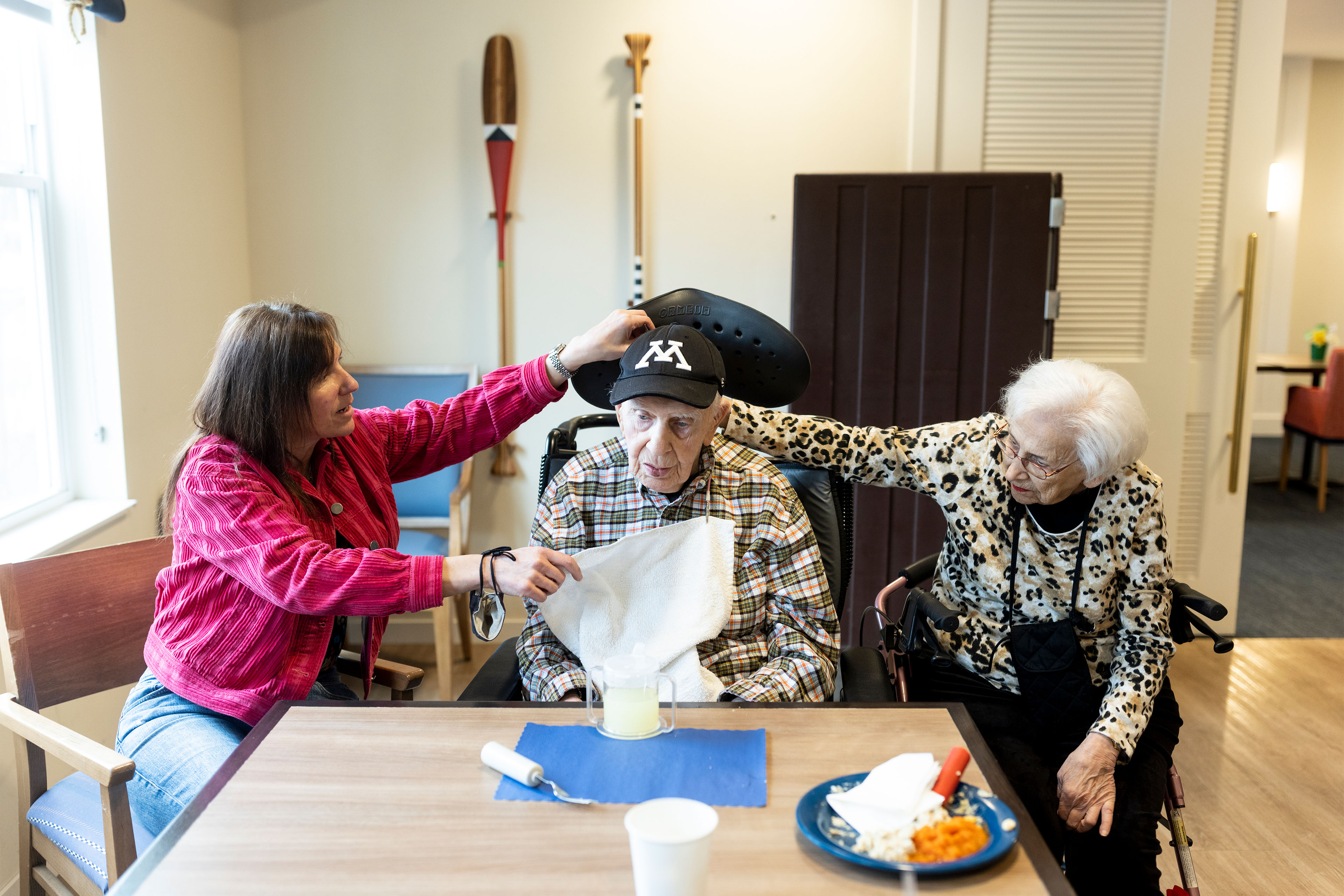Explore high-quality Memory Care programs designed for cognitive health.
Discovering the Right Assisted Living Service for Tailored Memory Treatment Programs
The process of choosing an ideal assisted living remedy for customized memory care programs requires a nuanced understanding of individual requirements, particularly as they connect to cognitive problems such as Alzheimer's and dementia. It is important to evaluate not just the credentials of the personnel yet also the availability of personalized care strategies that provide to the certain difficulties locals face. The effect of interesting tasks and an encouraging neighborhood can not be overstated. As we check out these factors, the inquiry stays: what truly constitutes an optimum setting for memory care?
Understanding Memory Treatment Needs
Recognizing the distinct memory care requirements of people with cognitive disabilities is essential for giving reliable assistance and improving high quality of life. Cognitive problems, consisting of Alzheimer's illness and other types of dementia, substantially impact an individual's capability to process info, communicate, and maintain self-reliance. Because of this, customized approaches are crucial in attending to these challenges.
People with memory disabilities usually experience confusion, state of mind variations, and disorientation, demanding an encouraging and structured environment. Memory treatment programs should concentrate on developing a safe area that motivates social interaction, cognitive engagement, and psychological well-being. This can be attained through specialized tasks, such as memory games, art treatment, and memory sessions, which promote cognitive excitement and preserve individual identity.

Examining Personnel Certifications
The qualifications of personnel in memory care programs are essential to providing high-quality support for individuals with cognitive impairments. Assessing staff credentials includes examining both educational background and sensible experience in geriatric treatment, particularly in memory-related problems such as Alzheimer's and other forms of dementia.
Search for team who have appropriate accreditations, such as Licensed Dementia Expert (CDP) or specialized training in memory treatment. These credentials indicate a commitment to comprehending the intricacies of cognitive decline and reliable interaction methods customized to locals' one-of-a-kind needs. On top of that, ask about recurring training opportunities that personnel participants get involved in, as continual education and learning is crucial in a field that evolves rapidly with new study and best methods.
Furthermore, examine the staff-to-resident proportion, as this directly impacts the high quality of care. A reduced proportion permits more personalized interest and involvement with citizens. Moreover, observe staff interactions with existing citizens to assess their empathy, persistence, and ability to link. Ultimately, a professional group is critical in promoting a setting that improves the dignity and quality of life for people in memory care.
Relevance of Personalized Care Program
Individualized care strategies play an essential duty in improving the well-being of people in memory treatment programs. These strategies are tailored to the one-of-a-kind requirements, choices, and capabilities of each homeowner, ensuring that treatment is both relevant and reliable. By considering variables such as medical history, cognitive feature, and individual rate of interests, caretakers can create a thorough strategy that advertises dignity and respect for each and every individual.
The significance of customized treatment strategies expands beyond standard care requirements; they promote a complacency and familiarity, which is essential for individuals experiencing memory challenges. By attending to certain behavior patterns and psychological actions, caretakers can implement strategies that decrease anxiety and enhance total lifestyle.
Furthermore, customized care plans facilitate better interaction among staff, relative, and health care providers. This collective technique makes sure that everybody included is informed and aligned in their care efforts, resulting in more regular and reliable assistance. Inevitably, a well-structured personalized treatment strategy is vital in memory care programs, as it not just boosts day-to-day living experiences yet likewise adds to the long-term wellness and happiness of homeowners.
Involving Activities and Programs

Activities such as art treatment, music sessions, and reminiscence treatment offer avenues for self-expression and cognitive interaction. These purposeful interactions not just help in maintaining cognitive capabilities but additionally supply emotional advantages, lowering feelings of seclusion and stress and anxiety that typically come with memory loss.
Furthermore, organized group activities can motivate socializing, which is important for emotional wellness - Assisted Living. Regular engagement in games, workout classes, and neighborhood outings produces an atmosphere of friendship and support. Customized programs that think about specific interests and backgrounds better improve engagement, making tasks more significant and reliable
Incorporating innovation, such as memory games and virtual fact experiences, can additionally offer to enrich the day-to-day lives of residents, offering cutting-edge ways to promote cognitive feature. Ultimately, a concentrate on appealing activities and programs is essential for fostering a helpful atmosphere that advertises all natural well-being in memory treatment settings.

Assessing Community Atmosphere
When evaluating a community atmosphere for memory treatment programs, it is essential to think about variables that add to the overall well-being and security of homeowners. The physical format of the community ought to prioritize availability and navigating, reducing barriers while supplying clear signage and familiar sites. A secure atmosphere is crucial to prevent residents from wandering, which can present safety and security threats.
Additionally, the sensory aspects of the community, such as lighting, color systems, and sound degrees, play a substantial duty in boosting convenience and lowering anxiousness among locals. Natural light and outdoor spaces advertise involvement with nature, cultivating a comforting atmosphere that can benefit cognitive feature.
An additional vital facet is the schedule of experienced staff who understand the unique demands of people with memory disabilities. Personnel ought to be equipped to create a Website nurturing atmosphere that motivates social interaction and psychological assistance.
Finally, the sense of area and belonging is crucial. Engaging family participation and chances for citizens to form links with peers can dramatically enhance their overall top quality of life. Memory Care. By carefully analyzing these aspects, families can make enlightened decisions concerning the most ideal memory care area for their liked ones
Conclusion
In verdict, choosing an appropriate assisted living remedy for customized memory treatment programs requires a comprehensive examination of private needs and preferences. Prioritizing team certifications, individualized care strategies, engaging activities, and a supportive area atmosphere is essential for improving the lifestyle for locals encountering cognitive challenges. By dealing with these essential aspects, households can make certain that their loved ones get the necessary assistance and like foster psychological health and cognitive stimulation in a nurturing setting.